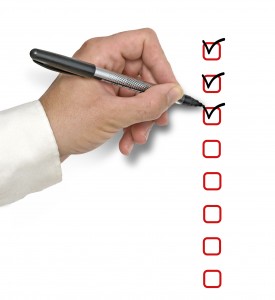TMJ Disorder Doesn’t Feel the Same for Everyone—Learn the Symptoms
September 26, 2014

People with TMJ disorder may experience a range of symptoms from jaw pain to pain or discomfort in different areas of the body that may seem unrelated. This is because the Temporomandibular Joint (TMJ) is one of the most complex and powerful joints in the body; with a four-way movement, made possible by the two separate joints that make up the TMJ. This joint has such great responsibility and intricacies that when something isn’t working correctly, it can present itself in many different forms.
Some of the common symptoms of TMJ disorder include:
• Difficulty chewing—pain or stiffness biting, chewing or opening the jaw
• Jaw pain—from slight jaw tenderness to debilitating pain
• Jaw locking—locking, popping or clicking of the jaw causes muscles to cramp or spasm
• Headaches—headaches are experienced by most people with TMJ disorder and can feel as intense as a migraine
People with TMJ disorder can experience some or all of these symptoms. These symptoms are not the only ones people with TMJ disorder experience, though.
Some symptoms may initially seem to the patient unrelated, but will be red flags to healthcare professionals, including:
• Facial pain—dull, aching pain throughout the face
• Ear pain—aching pain around the ear, earaches and ringing in the ears
• Upper back pain—pain or tenderness in the neck and shoulders
• Dizziness—slight dizziness or imbalance
• Facial swelling—swelling on one or both sides of the face
These painful symptoms may come and go, or they can last for years. The most important thing is to talk to a healthcare professional who is knowledgeable and certified in TMJ and Craniofacial Pain about your specific symptoms and treatment options.
Take a look at the TMJ Treatment Center’s TMJ Checklist to see if your symptoms are something you should discuss with your healthcare professional.




 Review Us
Review Us  Categories
Categories